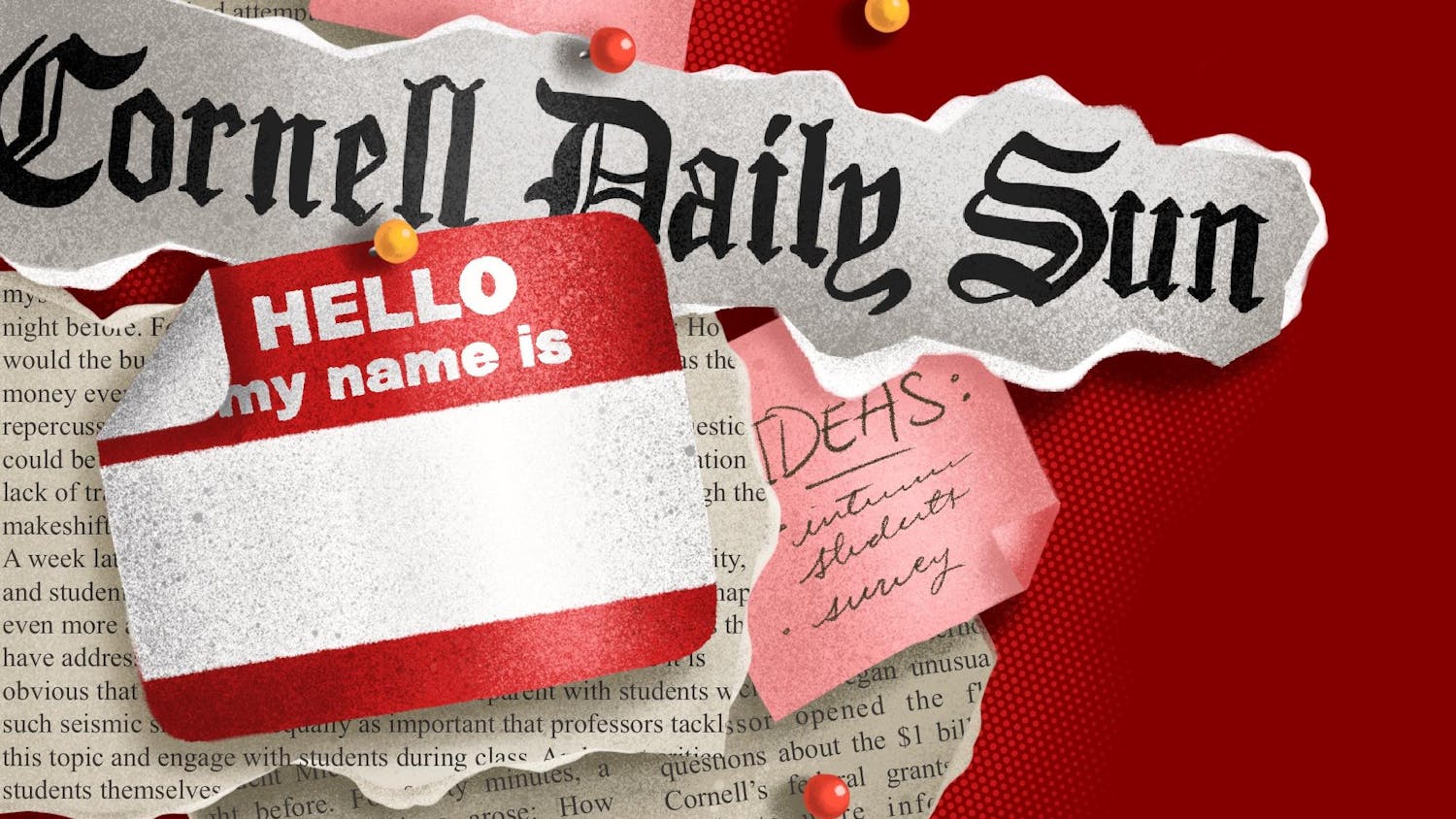The political world can be too all-encompassing. Of course, those who believe that everything is political will take issue with that statement, but it is not unreasonable to propose that one’s personal life ought to be divided from a life rife with division and inevitable conflict. I won’t litigate whether all things are political here (though they aren’t), but I will criticize the nature of our political environment today. Too often people worry about what is beyond their control, dwell on inconsequential things, and wallow in the negative emotions that stem from those anxieties. It has gotten to the point where 65% of Americans associate politics with a feeling of exhaustion, yet political engagement is at a record high. At Cornell, we cannot go a day without a politically-divisive event or decision, and the coverage thereof. This is not to say that political engagement is unhealthy. We simply have to be more mindful about our manner of engagement, lest we lead a life without peace of mind.
Control
It is well-documented that anxiety tends to stem from a lack of control over one’s environment. Be it a worry of how our professors will grade our work, or on which blue moon the next TCAT bus will arrive, we often find ourselves in distress because of our inability to have the world as we want it to be. The same applies to anger, because the frustrations of our day-to-day worries mixed with our inability to correct the wrongs of the world, tend to build up to a point of baseline aggravation. Yet, we constantly focus on political events and circumstances well beyond our control. That is not to say do nothing, or do not worry about them. There is always something to do. But it can be good toafford ourselves a certain level of serenity in how much of our time and emotional strength we commit to these things. Unhealthy engagement can become damaging to the cause, or to our commitment to it.
Inconsequential Things
Americans are addicted to information. We constantly want to know what is going on in the lives of others, be it political, pop culture or otherwise. Thus, we constantly find ourselves dwelling on information or situations that are relatively insignificant in how they benefit or harm our lives. Especially in the college context, we cannot help but worry about that one particular drama in another club or another one of the SA’s debacles. I believe this largely comes from the totalizing nature of college life. We are stuck in this environment for eight months out of the year, where most of our relationships are centered around the University, and our future careers often depend on our on-campus engagement. As such, we are often too engrossed in college-level conflicts, not just political ones, often failing to consider the purpose of our time in college and the life beyond it. I’ve made this mistake plenty of times in my time at Cornell: it is inevitable. But we should all be mindful to recognize that the vast majority of the conflicts, drama, and anxieties we have now will not matter a year after graduation. Your life begins after that. For now, focus on your education.
Self-perpetuating Negativity
One interesting thing I have learned at Cornell — which I am constantly reminded of in my engagement with politics — is that people cannot help but grasp more reasons to maintain what they believe to be righteous indignation. This is a natural extension of our tendency for confirmation bias. A classic example of this is bringing up a long-past character flaw to justify our disdain for an ex (despite being okay with it for the longest time), but this phenomenon can happen to all kinds of relationships. People also constantly believe themselves as the victim and underdog, giving them more reason to “fight” and “win.” This is all to say that righteous indignation is pleasurable, but easily misguided. Seeing yourself in this light can become an unhealthy obsession, constantly vigilant and distrustful of your environment and peers. It is because of painful lifestyles like these that polarization is at its highest today. While this kind of anger can be useful for political campaigns, it is ultimately corrosive, politically, emotionally and spiritually.
Obligatory Stoicism InsertTo prevent us from falling into these traps in our political engagement, there are plenty of solutions we can rely on, many of which conveniently align with Stoic philosophy. To prevent us from misjudging others and fueling an unhealthy perception of our righteousness, it is always wise to assume that others’ misdeeds stem from ignorance. This only matters if we are humble enough to admit the possibility of our own ignorance. To prevent ourselves from worrying about the wrong things, it is good to take the advice of Epictetus in his saying: “Don’t allow yourself to be dazed by the rapidity of the impact.” The swiftness and surprise of a particular event have little to do with its true impact. While it can feel good to basque in our righteous indignation, rushing to it is often a good indication that we are misguided. All of this is to say that we should set boundaries for our political engagement. Not everyone can handle the same level or type of engagement, and not everyone —given their academic and career rigor — should devote as much energy to it as others. While everyone’s boundaries will be different, simply being more mindful about the toll it can have is a good first step to take. At the end of the day, the goal is to have the serenity to accept the things we cannot change, the courage to change the things we can, and the wisdom to know the difference.
Daniel Obaseki is a fourth year student in the College of Arts and Sciences and the President of the Cornell Political Union. His fornightly column Beyond Discourse focuses on politics, culture and student life at Cornell. He can be reached at dobaseki@cornellsun.com.
The Cornell Daily Sun is interested in publishing a broad and diverse set of content from the Cornell and greater Ithaca community. We want to hear what you have to say about this topic or any of our pieces. Here are some guidelines on how to submit. And here’s our email: associate-editor@cornellsun.com.











